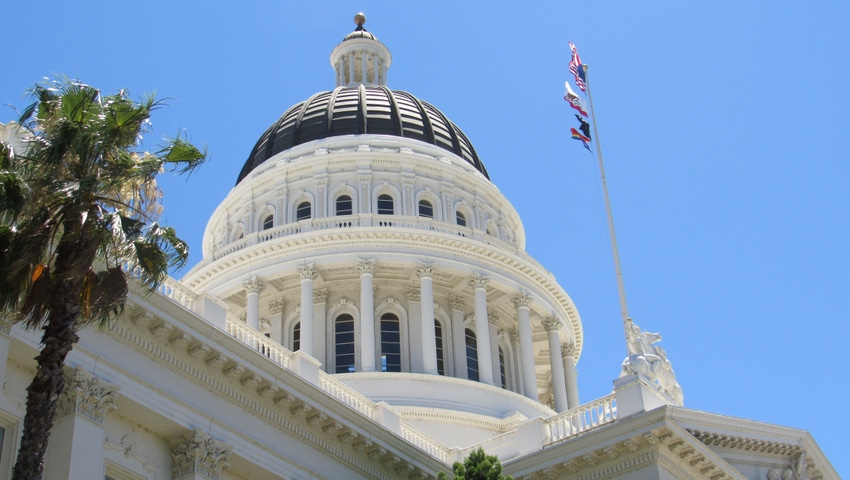
Amid widespread opposition, a state bill that would have required most Californians to show proof of COVID-19 vaccination to legally work was abruptly shelved by its author late Tuesday, March 29, only hours before the legislation was to face its first committee hearing.
More than a dozen farm groups were among 85 business, labor and parents' groups lining up against Assembly Bill 1993 by Assemblywoman Buffy Wicks, D-Oakland, which would have applied to all public and private workers and indepndent contractors regardless of the company's size. The bill included exceptions for those who have medical conditions or disabilities that prevent them from taking the shots or have religious objections.
The bill was to be heard today, March 30, by the Assembly Labor and Employment Committee. But Wicks announced Tuesday afternoon on Twitter she was putting the bill on hold to accommodate negotiations with public safety unions that strongly opposed the legislation.
"Our priority during this pandemic was to make sure all Californians are as safe as possible by following the data and science around public health -- which is why California continues to have some of the lowest COVID case rates, deaths and injuries per capita," she wrote.
In a committee bill analysis, the California Professional Firefighters complained that the measure "undermines the strength and importance of local bargaining and labor negotiations..
"Over the last two years, CPF’s local affiliates, as well as the local unions for our brothers and sisters throughout the labor movement, have diligently met with their employers in good faith to discuss and bargain local COVID-19 policies and solutions," the union asserted. "These negotiations are part of the core of organized labor, and to summarily remove these bargained policies with a blanket mandate sets a dangerous and demoralizing precedent.”
Farm groups fighting the bill included the California Fresh Fruit Association, the California Walnut Commission, Western Growers, the Agricultural Council of California, the California Association of Winegrape Growers, the California Apple Commission, the California Blueberry Association, the California Blueberry Commission, the California Rice Commission, and the Olive Growers Council of California. The labor committee also heard from 1,178 individuals in opposition to the legislation.
The four groups listed in support include Small Business Majority, which argues that businesses "are at an inflection point in their recovery from the ongoing pandemic" and want to protect hte safety of their employees and customers. The Washington, D.C.-based nonprofit claims a network of more than 85,000 small businesses nationwide but does not list them.
The bill would take effect Jan. 1, 2023, requiring employers to affirm to the state that each employee and contractor has complied and imposing an unspecified penalty on those that didn't. The bill could be rescinded if the U.S. Centers for Disease Control and Prevention determines that COVID-19 shots are no longer necessary.
Related bills
AB 1993 was part of a slate of coronavirus-related bills being considered by the Legislature this spring. Others include:
Senate Bill 866 by Sen. Scott Wiener, D-San Francisco, which would allow children 12 and older to consent to vaccinations without their parents' permission. It is in the Senate Judiciary Committee.
SB 871 by Sen. Richard Pan, D-Sacramento, which repeals the removing of the personal belief exemption from any additional immunization requirements. The bill is currently in Senate Health Committee.
AB 1797 by Asemblywoman Akilah Weber, D-La Mesa, which would require employers to disclose specified immunization information. It is in the Assembly Health Committee.
The bills have drawn the attention of a truckers' convoy that has been in the Washington, D.C. area for the past several weeks protesting federal vaccine mandates. The "People's Convoy" has left the D.C. area and is heading west to California to demonstrate against the measures.
The legislation comes as most areas of the nation are rolling back coronavirus mandates, and as 21 states announced March 29 they are suing to block a federal mask mandate for public transportation.
In January, the U.S. Supreme Court stayed an emergency federal rule that would have required private employers of 100 or more employees to order their workers to get vaccinated or submit to testing. But courts have upheld local and state authority to mandate vaccines, including in New York City, which was the first U.S. metropolitan area to impose such a mandate but has partially lifted it.
A mandate for workers in California could significantly affect Latinos, less than two-thirds of whom are vaccinated in the Golden State or nationwide, according to CDC data from early March. An Oregon State University study last fall found that mistrust was fueling COVID-19 vaccine hesitancy in the Latino community.
About the Author(s)
You May Also Like






